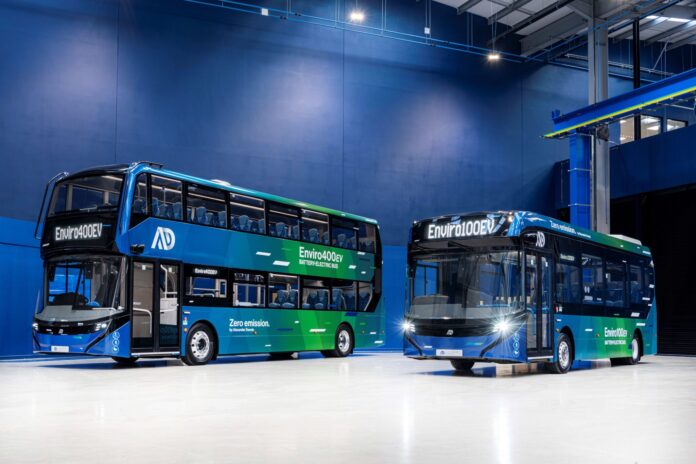One of the obstacles that e-mobility is facing is the price and reliability of lithium-ion batteries, but new solutions are constantly being developed to improve zero-emission means of transport. The new batteries of the Polish company Impact Clean Power Technology are an interesting solution that will be used in buses in the UK.
Impact Clean Power Technology unveiled the next-generation battery systems for British bus manufacturer Alexander Dennis, the Enviro100EV and the Enviro400EV for a double-decker bus. Production of both types of vehicles has already begun, and deliveries will be made in the first months of 2024.
„In response to the expectations of our partner at Alexander Dennis, we have developed and delivered a battery system based on a new generation of lithium-ion cells in NMC technology. The size of the batteries allow them to be placed in the bus in such a way that, for example, the total number of passengers in the Enviro400EV increased by 19 percent. In addition, our batteries have been designed so that they can be adapted to newer cells over time. In the fast-growing battery technology market, we provide users with the opportunity to modify and introduce the latest technologies throughout the life of their vehicles,” says Bartek Kras, Impact Clean Power Technology CEO.
„The pace of change in our industry is fast. We are proud of the progress we have made when it comes to electric buses over the past seven years, as well as our wide range low-emission technologies that were available before this era. Now it’s time for us to go one step further and take zero – emission buses to the next level, ” said Paul Davies, president and Chief Executive Officer of Alexander Dennis.
Impact’s battery systems will be used in the latest buses-Enviro400EV and Enviro100EV. The batteries will have Nickel Cobalt Manganese (NCM) cells, which are very durable and less impacted by exploitation and, among others, low temperatures. This technology also provides a long service life without loss of initial parameters.
„One of the things we did to ensure the highest level of safety was changing the method of installation – the batteries are not bolted directly to the vehicle floor. Thanks to mechanical insulation, they are protected against twisting and damage caused by stones and other objects that can be encountered on the road,” says Chris Gall, Group Engineering Director at Alexander Dennis.
The Enviro400EV double-decker bus will be equipped with 472 kWh batteries as a standard, with an option of 354 kWh. In the Enviro100EV midibus, the batteries have a capacity of 236 kWh or 354 kWh. Both vehicles can be used in urban traffic and in transport between cities. The Enviro400EV can carry 98 passengers and has a range of up to 400 km on a single charge. Depending on the configuration, the Enviro100EV takes between 25 and 45 people and can cover up to 460 km. The batteries are mounted inside the chassis and rear of the vehicle and under the stairs in the case of the Enviro400EV.
Impact Clean Power Technology has been on the market since 2007. The Polish company sells its battery systems in Europe, New Zealand and the United States. The Impact laboratory builds innovative battery systems with parameters that ensure a market advantage in every segment where the company is present. Impact is constantly working on the next generation batteries, and supports global efforts towards a zero-emission economy and the upcoming hydrogen revolution. The company has delivered more than 20,000 reliable battery systems. Vehicles with Impact batteries have already driven more than 100 million km around the world. The company employs more than 290 employees, including more than 100 engineers of various specializations.
Impact Clean Power Technology / Jacek Perzyński
